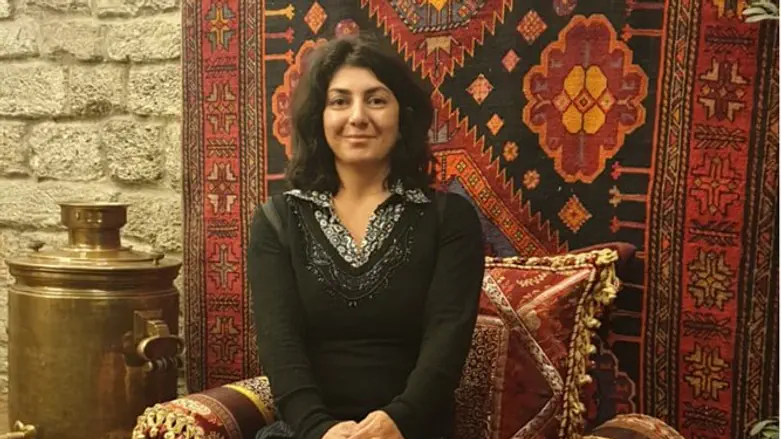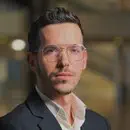
Diana Aharon was only 14 years old when her parents informed her that the family was leaving Azerbaijan and making Aliyah to Jerusalem. Twenty-eight years ago, after the Communist regime fell and the countries in that Eurasian region opened their borders, Diana’s family set off on the quest to fulfill their dream. Upon arrival, they lived in Ashkelon and after several years they relocated to Jerusalem.
Married and a mother of three, Diana lives in Jerusalem and works as an intensive care nurse. She is studying towards a master’s degree in nursing at the Jerusalem College of Technology (JCT).
Diana was 16 when her family moved to Jerusalem. At the time, she began to volunteer at Shaare Tzedek hospital, where she also volunteered doing her national service. After her first service year at Shaare Tzedek, she completed a second service year with the Magen David Adom emergency medical service Jerusalem.
"It was exactly during the years of the second intifada. I was exposed to many terror attacks and wounded victims," she says. "There were difficult scenes. The gap between our years-old dream of holy and pure Jerusalem and the exploding buses was huge."
Alongside those traumatic events in Jerusalem, Diana also witnessed the grave situation facing her fellow community members from the region.
Today, the community from the Caucasus region in Israel has approximately 150,000 members and is characterized by a strong commitment to communal life. "The community during these years was living in very difficult conditions, in terms of functioning at work, standard of living, language skills, education, and more," Diana explains. "I was at the time only 19 years old, and I did not imagine that my community could be in such an inferior situation here, just because our dream was to make Aliyah. I realized that it was impossible to stand by this injustice, and I decided to act from the inside out."
After more than two decades as an intensive care nurse, Diana decided to pursue a master’s degree in nursing and is currently beginning her third year at JCT’s Tal Campus for women.
"I have an inner ambition to do things in the best possible way and strive to constantly learn and keep up to date. During the past few years, as part of my job as an intensive care nurse, I was exposed to a course called ‘support treatment,’” she says. "Support treatment means improving the quality of life of the patients who are struggling with life-threatening diseases. The emphasis is on improving the quality of life of the patient so that he suffers as little as possible, not just saving lives. When I heard a master’s degree clinical specialization track for ‘support treatment’ was being offered at JCT, I did not hesitate for a second.”
Diana has been volunteering for two years with the “Lev Bakehila” project, in which JCT students work to improve accessibility for people with disabilities. As part of her volunteer work, Diana says she “first and foremost” supports the Caucasus community in Jerusalem.
"I have been privileged to assist new immigrants, the elderly, people with disabilities, parents of children with disabilities, families challenged with economic difficulties struggling to obtain relief from welfare, people who need recognition from the Ministry of Immigrant Absorption, and more," she says. "The volunteering work at JCT with this community is totally natural for me, since I have been for years in close contact with officials in the Jerusalem Municipality in the welfare department and the social insurance offices, and with other organizations in the framework of assisting the community. In recent years I have been in contact with welfare authorities in other cities, after members of the community in these cities have approached me for help with difficulties they are facing."
Diana was recently approached with a case of domestic violence in another city, and turned to authorities to ask for help in finding a shelter for at-risk family members.
“While in Jerusalem I already know the welfare system and the people involved, in other cities it's more challenging,” she says. “More than once I found myself powerless. Despite being an intensive care nurse and seeing difficult scenes in my life, the encounter with harsh situations in my own community sometimes results in sleepless nights. The support and guidance of the Lev Bakehila team empower me, and I hope that at some point the Caucasus community will succeed in fully integrating into Israeli society like other immigrant populations have done.”
